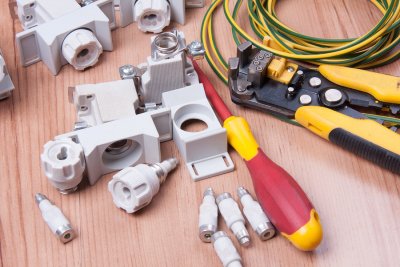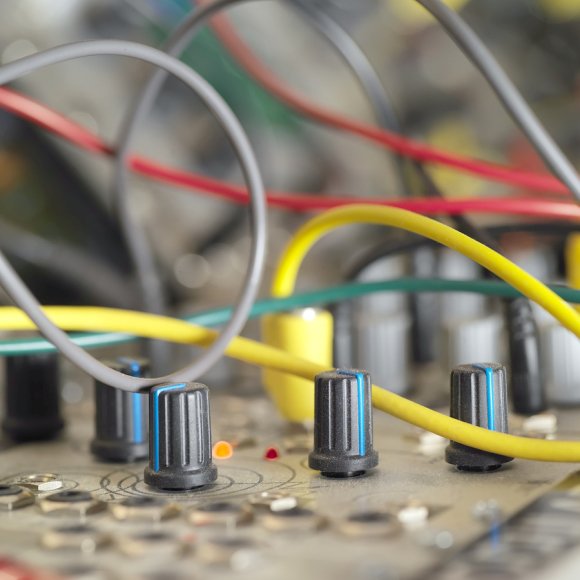-
These Signs Mean You Should Call an Electrician About Rewiring
Problems with your electrical wiring in San Jose can present quite a few hazards, but how do you tell if you’re at risk? In addition to having your residential or commercial electrician check out your system, there are some signs that you can look for. If you know that your electrical wiring was done a long time ago, you should keep a closer eye out for problems. You might also need to replace your electrical wiring if your panels are malfunctioning or if your outlets aren’t receiving enough power. Learn more about these signs by reading ahead.

Old Wiring
The older your building is, the more likely it is to contain old wiring. This type of wiring is more prone to malfunctions, which can cause unnecessary danger for your home or office. If you frequently deal with electrical problems—even minor ones—you might have old wiring. In this case it’s a good idea to consider the benefits of rewiring. Your electrician can completely rewire your system, which will make it more efficient and safer for your family or patrons.
Dangerous Electrical Panels
Your electrical panel is full of fuses, and they control the amount of electricity that enters your home or business. If too much comes through at once, a fuse will trip and the electricity will be cut off. This helps keep you safe, but only if it works properly. Rewiring will help to make your electrical panels safer and more effective. This minimizes the chances of accidents and injuries, and it can boost the efficiency of your electrical system.
Lack of Power to Outlets
When you plug an appliance in and push the power button, you should expect it to turn on. If it doesn’t, you might think there’s something wrong with the appliance, or you might check the electrical panel to see if you blew a fuse. While both are possible culprits, the problem could also be your wiring. If it turns out that your appliance works when plugged into a different outlet, and the fuse wasn’t blown, then consider electrical rewiring to bring power back.
-
What Is Knob-and-Tube Wiring?
As a homeowner, you likely take great pride in tackling home improvement projects yourself. However, there are some things that are worth calling a professional for: electrical wiring , for example. If your home was built before World War II, there’s a chance that it was wired with the knob-and-tube method. This wiring method is now obsolete, and should be replaced wherever it exists.
As the name suggests, knob-and-tube wiring is comprised of ceramic knobs and tubes. Unfortunately for the owners of older homes, knob-and-tube wiring is difficult to improve or retrofit, and is considered a fire hazard—especially when the wires are surrounded by building insulation. This is because the fiber materials in knob-and-tube wiring can become brittle over time. If your home has this type of wiring, it’s possible that your insurance company will not approve fire insurance. For the sake of your own safety, it’s important to have an electrician identify and remove knob-and-tube wiring and replace it with a safer method of wiring as soon as possible.

RECENT POSTS
categories
- Uncategorized
- Delta Electric
- Commercial Electrical
- Residential Electrical
- Electric Circuits
- Dedicated Circuits
- Circuit Breakers
- Electrical Panels
- Electrical Wiring
- Safety Inspections
- copper wires
- Electrician San Jose
- Trained Electricians
- Electrical Services San Jose
- Malfunctioning Electrical Outlets
- Circuit Breaker
- Grounding
- safety
- Flickering Lights
- Arc Fault Breakers
- electrical system
- Aluminum Wiring
- Circuit Interrupters
- House Surge Protection
- Zinsco Panel Warnings
- Wiring Conversion
- GFCI outlet
- professional electrician
- Knob-and-Tube Wiring
- modern home electrical system
- Fuses
Archives
2024
2023
2018
2017
- December (4)
- November (4)
- October (5)
- September (4)
- August (4)
- July (4)
- June (4)
- May (4)
- April (4)
- March (3)
- February (4)
- January (3)
2016
- December (3)
- November (4)
- October (4)
- September (4)
- August (4)
- July (4)
- June (4)
- May (4)
- April (4)
- March (4)
- February (4)
- January (4)
2015
- December (4)
- November (4)
- October (4)
- September (4)
- August (3)
- July (4)
- June (4)
- May (3)
- April (4)
- March (4)
- February (2)
2014
- December (3)
- November (4)
- October (4)
- September (6)
- August (2)
- July (3)
- May (2)
- April (1)
- March (2)
- February (1)
- January (1)

